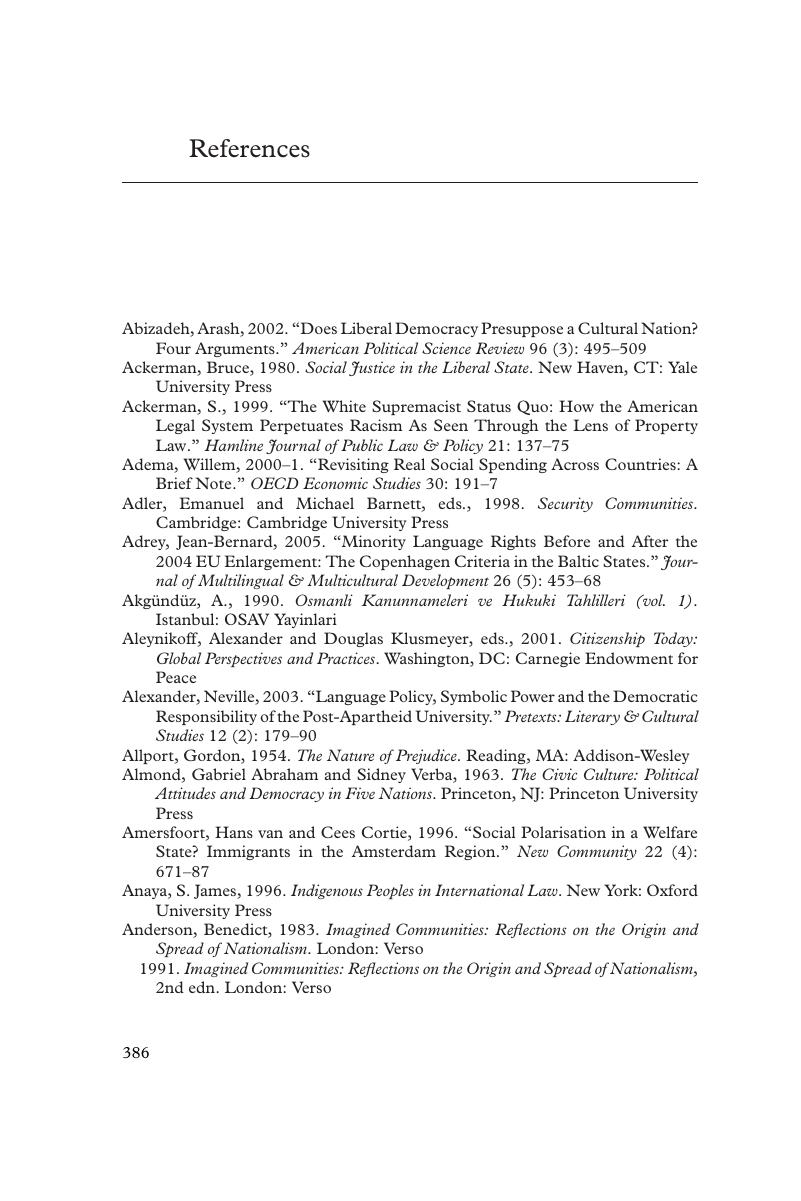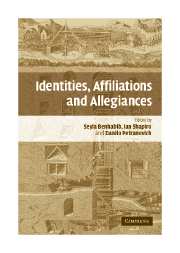Book contents
- Frontmatter
- Contents
- List of figures
- List of tables
- List of contributors
- Editors' introduction
- Part I Emergence and limits of national political identities
- Part II Multiple identities in practice: the European example
- Part III Decoupling citizenship from identity
- Part IV Identity and historical injustice
- References
- Index
- References
References
Published online by Cambridge University Press: 05 June 2012
- Frontmatter
- Contents
- List of figures
- List of tables
- List of contributors
- Editors' introduction
- Part I Emergence and limits of national political identities
- Part II Multiple identities in practice: the European example
- Part III Decoupling citizenship from identity
- Part IV Identity and historical injustice
- References
- Index
- References
Summary

- Type
- Chapter
- Information
- Identities, Affiliations, and Allegiances , pp. 386 - 416Publisher: Cambridge University PressPrint publication year: 2007



